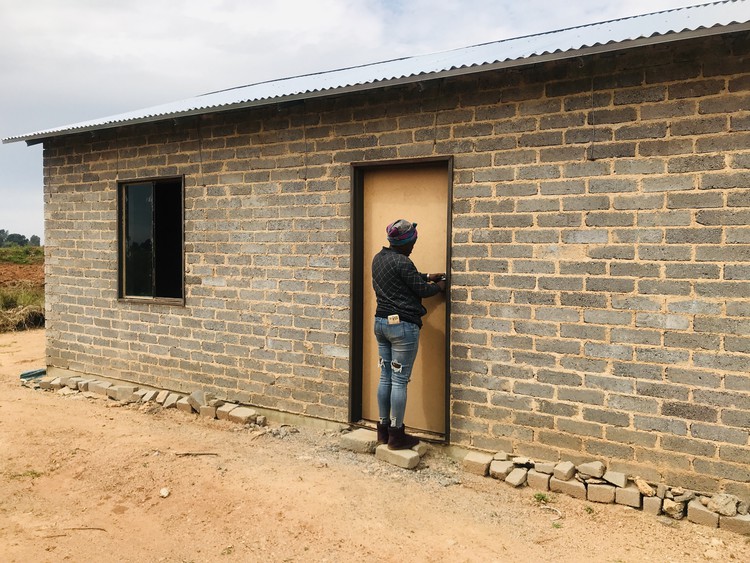“Staying safe from Covid-19 is a concern for those who have homes” says evicted occupier
Ekurhuleni Metropolitan Municipality says occupiers refused offer for alternative housing
While many South Africans have spent the past few days hunkering down for the national lockdown, Maria Madi says she has had no choice but to wander the streets of Mayfield in Daveyton looking for food and a safe place to sleep for the night.
“Staying safe from Covid-19 is a concern for those who have homes,” she said.
Madi and 53 other families were removed from RDP houses they had occupied in Mayfield Extension 32 and 34 last week, just prior to the lockdown. Madi says in a bid to keep safe, she uses wet wipes to clean her hands and face. “If we were in our homes we would have some water,” she said.
Madi’s two children are living at a home nearby where she pays a daily R10 fee. She said that when she can she buys a loaf of bread and takes it to her children so they have something to eat.
On Monday night, Madi and some of the occupiers slept at a taxi rank while others went to nearby bushes to avoid being troubled by police. The families say police have been patrolling more frequently since the lockdown. “They tell us to go home, but there is no home to go to.”
The families say metro police officers have been guarding the homes they once occupied. According to the community’s committee representative Sipho Mahlangu, about 123 families were evicted from the RDP houses. “They had illegally occupied the houses in December 2019 following allegations that houses were being sold by officials from human settlements,” he said. Mahlangu explained that the housing project came to a standstill in 2016. It is unclear why at this stage.
He said when people occupied the houses in December, they fixed the roofs, doors and windows. He said some occupiers even claimed to have bought the house they lived in.
On 23 March, police and law enforcement arrived to remove the families. For those who resisted, police fired rubber bullets and broke down doors to get them out.
Occupier Nomakhosi Samo recalled how she had to hide her seven-month-old baby girl in a ditch while police shot at them. “My baby screamed so loud … I had to keep her from being shot by rubber bullets. I came back to fetch her later in the night and we slept in the bush until morning.” Samo pointed out a wound on her back where she had been hit by a rubber bullet.
Several people were arrested on Sunday night and released the next day. Most of the families spent the next three nights with their belongings outside the Putfontein Police station.
Captain Raider Ubisi from Putfontein Police said, “We have no capacity to accommodate a large number of people that is why we told them to leave. The number of people was too big and with the current Covid-19 virus we could not entertain that they stay at the police station.”
Mahlangu said they hired a lawyer to represent the group at the Johannesburg High Court on 26 March. He said they were granted an order which interdicts the City of Ekurhuleni Metropolitan Municipality, SAPS and metro police from evicting the occupiers.
The order dated 26 March states: “The Ekurhuleni Metropolitan Municipality is interdicted from evicting the Second to 57th applicants and anyone in occupation of the properties. The same Municipality is precluded from evicting any of the persons or harassing them.”
Mahlangu says their attempts to move back into the homes have been blocked.
On Saturday, another order was granted in their favour, ordering the City to provide them with alternative accommodation. Occupiers say no attempts have been made to house them. However this was disputed by the municipality.
MMC for Human Settlements Lesiba Mpya said, “We cannot have sympathy for people who are breaking the law. They put their bases and mattresses into the houses and pretend to be living there so they can impose themselves to benefit from the housing project yet they do not qualify.”
Mpya said that the City offered housing, but the occupiers refused, demanding to be accommodated as a group. “We have come to the conclusion that those people are not homeless. The offer is still on the table,” said Mpya.
© 2020 GroundUp.
This article is licensed under a Creative Commons Attribution-NoDerivatives 4.0 International License.
You may republish this article, so long as you credit the authors and GroundUp, and do not change the text. Please include a link back to the original article.



